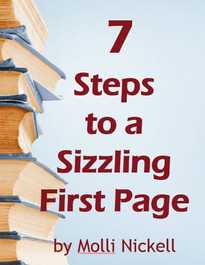 When an agent reads your query and synopsis, this proves you're on the right track . . . so far. You've captured their interest. Next, they want to know if you truly are the skilled story teller you appear to be. How can you ensure they scroll down the screen and read every bit of your submitted manuscript? Begin your story with 350 captivating words. Even though you've created a slam-dunk query and compelling synopsis, your first words must provide sufficient impact to keep the momentum going. Or stop it dead in its tracks and send your submission off to delete-ville. Publishing is a business. Agents are business people. They're not looking for a manuscript to read. They're looking for a manuscript they can sell to a publisher who will transform it into a book that generates cash flow for everyone down the line: retailer, publisher, agent, and you, the writer. Once you sign a publishing contract, and your book goes into production, it becomes the focus of a gang of editors, book designers, advertising specialists, etc. They'll revise and amp up your first 250 words to create a captivating first page to engage the reader and motivate a page turn. Then what? Kaching! Kaching! Book store sale$. This is why it's vital to engage agent interest (and motivate them to keep reading) by including one or more of the following in your manuscript first 350 words:
0 Comments
As the publishing biz adopts digital technology, many smaller, traditional publishers have merged with conglomerates who already have editing departments. The influx of books waiting for editing increases the need for additional in-house editors. However, in a cost-cutting move to hold down production costs, publishers now rely on agents to submit manuscripts that are saleable and well-edited as well. This is why it’s so important for you to revise words and phrases that will cause agents to label your manuscript as being "unworthy" of publication and send it to delete-ville. Yikes! You don't want that to happen.  (So, what are these killer words? They’re identified, along with a search-mark-revise technique, in my “red-flag” mini-tutorial available at MolliMart.) The increased dependence on agents has increased the agent population. And, as you might expect, this attracts increasing hordes of agent scammers, eager to prey on writers who want, more than anything, to become published authors.
If you’re on the agent quest, run away, fast as you can, from any agent who:
Due diligence is the rule of the day. Legitimate, newer agents, eager to build their list of writer clients, can be treasures for unpublished writers. Particularly if the agents have industry-relevant track records, and are associated with reputable agencies. Bottom line? Educate yourself. Research agent/agency track records at:
Deidre Knight at The Knight Agency offers sage advice:
“If you’re serious about your career, be focused and become educated. Read, read, read, and read some more in the genre you write in. Become aware of current industry industry standards for query submission. Our agency receives 300 submissions a week. In order to stand out, your query letter must be beyond reproach. When we ask for sample pages—they need to be A+ shape. If you’ve done your homework, you will be successful.” A seasoned veteran of the literary agent biz, Deidre advises writers to always "be true to yourself. No one has your unique voice. If you try to bend and shape your point of view into something that’s on trend—the story will come across as lacking sincerity and heart. Any seasoned literary agent spot you coming a mile away." She’s interested and will look at query letters in the following genre: romance, nonfiction, literary fiction, young adult, and middle grade with debut or established authors. For information on how to submit, CLICK HERE.  Many writers make this fatal, but common, mistake when they craft query letters. Instead of telling their stories, they tell about their stories. This condemns their query submissions to delete-ville. Yikes. Nobody wants that! The query has one purpose. To tell your story and prove you're the real deal: a writer with storytelling skills and a marketable manuscript. This is why it’s vital to write your query using the same tone and style as you’ve written your story.
TELLING THE STORY: Little Red Riding Hood skips down the forest path, lugging a ginormous picnic basket. She whistles a happy tune, eager to trade hugs and butterfly kisses with granny as they nosh on broccoli pizza and brownies. This tells the story of Little Red Riding Hood and includes descriptive verbs like skip, lugging, whistle, eager, trade, and nosh. TELLING ABOUT THE STORY: My story is about a little girl traversing a forest path, (unaccompanied by a responsible adult), who delivers lunch to her grandmother. This tells “about” the story of Little Red Riding Hood, but reveals nothing about her emotions, her mission, or her lunch menu. Which version is more inviting and presents the potential of an inviting read? Which will motivate the agent to continue reading? Did you chose the second one? Really? C’mon now! Study the difference. Time-challenged agents will not spend a nano-second trying to figure out if you’re a writer of promise when you submit a query that tells about your story. Your query will fly off to delete-ville! Need some query assistance? CLICK HERE for books and tutorials at MolliMart. Spring brings with it hordes of publishing predators as writers' conferences gear up for yearly meetings. Be aware that all conferences are not created equal. Agents, acquisitions editors, and publishers are vetted by conferences sponsored by national organizations, like the SCBWI or RWA. Smaller, state or regional conferences, don't perform the same due diligence. They're happy to snag any agents, acquisitions editors, or publishers who will attend their conferences and help them attract paid customers: writers who want to become authors.  Publisher predators hide their true motives. They look and act like the real deal as they flash glossy business cards and showcase their websites, filled with books they claim to have published. Once they spot a flicker of interest in a writers' eye, they lavish praise on the writer's work and promise everything in return for a signature on their contract. Some of the perks include professional editing and book design, extensive promotion and marketing programs, interviews, blog posts, author tours, shelf space at Barnes and Noble and listings on every virtual bookstore on the internet. Wow! What's not to like? The writer launches into their happy dance, doesn't read the contract (which they wouldn't understand anyway), and signs on the dotted line. Oh dear! They've just given away the rights to their manuscript . . . forever. Once they discover the publisher is more fake than real and perks offered are not part of the program, it's too late to wrestle back the rights to their own work.
One of my clients fell prey to a publisher predator who printed her book via a P.O.D (Print on Demand) company. The un-edited, poorly designed book shrieked "rookie" and only sold to faithful F&F (the author's friends and family). Despite repeated emails and phone calls requesting follow through on promises made, nothing happened until an attorney stepped into the picture. One year and several hundred dollars later, my client regained the rights to her manuscript. Publisher predators, who thrive on the inexperience of newbees, often entice the writer to hire their "associate" for editing, and a second "associate" for formatting and cover design. The writer goes along to get along, pays the fees and hopes for the best: a beautifully designed and carefully edited book. Never ever happens! The end result is always the same: a poorly crafted book that will never make it onto the shelves of Barnes and Noble. Become your own first line of defense~ When you receive notice of a writers' conference that looks promising, study the listings of publishers who will attend. Check out their websites, then read sample pages of their books at Amazon.com. What are you looking for? Books with unappealing covers, tiny page margins, small type, extensive writing mechanic errors, and un-edited text. Steer clear of these "publishers." Take advantage of the situation~ If you're offered a contract from a possible publisher predator, or any publisher, never ever sign a contract without consulting an agent. If you've researched potential agents interested in your genre, email them and explain your situation. "I've received an offer of publication, and would appreciate your professional opinion." Also include (in the same email), your query letter, synopsis, and sample pages. Most agents will read a query that has generated publisher interest, even if the publisher may or may not be legit. This can result in your landing a agent to watch your back and help you get what you've wanted all along, a credible publisher.  Nancy Cavanaugh's dream, since 1994, was to become a published author of children's books. Her path toward that goal has involved learning to love each part of the process which she describes as:
I met Nancy when hosting a critique group in my home. She inspired us with her determination to expand her story telling skills, and develop material for different venues, including articles and curriculum for mid-grade students. Nancy's path to publication has not been straight forward (very few are). She launched her quest with a dynamite query letter which landed an excellent agent who recognized her ability to tell stories beautifully tailored to the mid-grade market. However, and here's where the process took off in an un-anticipated direction. The agent couldn't sell Nancy's first book, "This Journey Belongs to Ratchet" because a similar one, with excellent reviews and upward sales, already was on the market.  At that time, Nancy was polishing a second book (smart move: always have your next book underway). So, her agent shifted gears and sold Book #2, "Always Abigail" to Jabberwocky (2013), a division of Sourcebooks. One year later, Nancy's agent sold her first book, "Ratchet." Her third book, "Just Like Me" was released this year (2016). Nancy's future is filled with books, books, and more books, geared to the market she knows and loves. When asked how she managed to keep plodding along toward her goal of becoming a children's book author, Nancy cites her personal motto, "Slow and steady finishes the race." Comment from Molli: So, what's your motto? Inaccurate information has a longer shelf life than Velveeta. It hangs around forever, or so it seems, especially on the Internet. For example: articles/blogs/columns that advise writers how to submit snail-mailed query letters. Oh Puleeze! Snail mail is so yesterday! Submission misinformation also lives in books, even those with current publication dates. Information in any published book had been assembled at least one year prior.  This can be deadly for writers. If you follow out-of-date formats when you submit your project, you'll be shooting yourself in the foot. You’ll appear to be an out-of-date writer. Plus, your work, since it requires effort to open and read, will be thrown onto the slush pile (like the one on the left), or tossed into the circular file, unread. No writer wants that! It’s time to reboot and discard everything you thought you knew about submitting your work to an agent (editor or publisher). The drip, drip, drip method is long gone. Prior to 2014, you’d submit your query, and wait for a reply. Then, if the agent requested to read your synopsis, you’d mail it in, and wait for a reply. Finally, if the agent requested sample chapters, you’d mail these, and, as usual, wait for a reply. Yawn! Welcome to the digital age. The documents in your submission (query, synopsis, and sample pages) are cut and pasted inside one very looooooong email, and fly into agent inboxes. The following five (5) steps will help you make the most of your device-and-agent-friendly submission package. ONE: Become technically aware Your work may be read on small screens, including smart phones, so don’t waste space or the agent’s time. Remove all blank lines between paragraphs. Because all browsers are not created equal, how your materials look when you submit them is not necessarily how they will be received. What looks like a comfortable blank line on your computer translates into a huge (and wasted) space between paragraphs when your work is being scanned on a smart phone screen. TWO: Win the battle for attention Write a snappy subject line. Capture the agent’s attention with one “CLICK,” so your submission will be opened. However, if the agent requests the word “query” and/or their name in the subject line, do it! Then, unless your title is uber fascinating, substitute a few clever, enticing, well-thought out words that pertain to your manuscript and will garner attention. (The ease and inexpensive nature of email submission has created an unintended consequence. Hundreds and thousands of typing-enabled non-writers now submit their sure-to-be-best-sellers to every agent with an email address. This tsunami will engulf your submission unless you win the battle for attention by crafting a subject line that demands “open me now!”) THREE: Reveal your story core quickly Jump right into your story on the first line of your 350-word query. No headings, no addresses, no date, etc., unless the agent specifies title, genre, and word count on your first line. Give them what they ask for, then begin your query on the 2nd line. Note: Make certain your first paragraph reveals the story core. Who wants what, why they can’t have it, and the terrible “or else” that will occur if they don’t get what they want. FOUR: Edit, edit, edit Before you begin the submission process, perform due diligence and determine that your work is, indeed, ready for prime time. Self-edit to revise writing mechanic errors. Same with “red-flag” words: purge these rascals out of your documents. FIVE: Testo! Testo! Send your submission to yourself and read it on your phone or tablet. Right away, any formatting issues will be easy to spot. Fix them!  If you need assistance with any aspect of landing an agent or getting published, CLICK HERE to check out my various writers' services or drop by MolliMart a valuable resource of low-cost tutorials. 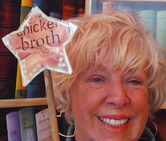 Once upon a time, six Talented Writers joined a critique group. They expected business as usual: a bit of manuscript evaluation and lots of chit-chat, often unrelated to the quality/focus/context of the manuscripts being critiqued.Surprise! Surprise! Surprise! The volunteer group leader (a hard-core critiquer and former acquisitions editor) had other ideas and was determined to poke, prod, push, and encourage the Talented Writers to mature their story telling skills and get the heck published! Chit-chat became the first casualty. One smartphone timer and a Talking Stick (formerly known as a Magic Wand) helped Talented Writers stay on track, and listen to critique comments without speaking (since they were not in possession of the Talking Stick). Next came a radical change in manuscript evaluation. As the Talking Stick was passed around the circle, each critiquer first shared what "worked" for them and why. Two sentences max. Next, they shared what "didn't work" for them and why. Two sentences max. They passed the Talking Stick to the next critiquer. The Talented Writer who was being critiqued, listened and did not respond unless they were able to arm wrestle the Talking Stick away from a fellow critiquer (which hardly ever happened). After everyone shared their perceptions, left-over minutes were used by the Talented Writer to make comments, ask questions, defend positions, or indulge in meaningless chit-chat. However, as you might expect, in the early days of the process,most of the Talented Writers couldn't refrain from interrupting, responding, defending, explaining etc., etc., etc. This resulted in their evaluation time running out before everyone shared their "what worked" and "what didn't work." Whine. Whine. Whine. Tuff beans. Very quickly the Talented Writers evolved to listen instead of talking. The intended consequence of Talking Stick has been the elevation of a group of pretty good Talented Writers to become pretty darned good Talented Writers. They've become better listeners, more focused critiquers, and have strengthened their writing skills (the goal all along). They've increased their potential to become published authors. Moral of the story: Focus. Listen. Think. Make a Talking Stick. Use it. Does your critique group have a Talking Stick? Or, how do you handle the issue of evaluation time wasted by chit chat? Or is it even an issue with your group? Leave your comment below. 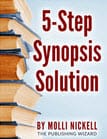 What is the second-most jaw dropping, intimidating, terrifying word to most writers? SYNOPSIS! (The #1 most dreaded word? . . . you guessed it, the QUERY.) Telling to selling~ Writing a synopsis is like venturing into the unknown. You already know (or are learning) how to "tell" a story. Once your manuscript is edited, polished, and ready to be sent out into the publishing world, it becomes time to shift from "tell" to "sell." (And no, I'm not suggesting to park at the mall, pop the trunk, and strong arm shoppers to buy your manuscript.) In this situation, the word "sell" means convince. Your task is to convince an agent that you are the real deal: a skilled writer with a salable story. Your fabulous manuscript, along with your query and synopsis are sales tools that help you make the case. Are you ready for some really good news? Once you understand query letter what, where, and why, you have the information you in order to write a synopsis. You know what the protagonist wants (goal) and who or what stands in their way (obstacle). You know the driving force behind their emotion-driven actions. You know the outcome of their struggle to get what they want. (Resolution). Your query letter second paragraph ends with a "tease" and causes the agent to wonder, "Hmmm, what happens?"They keep scrolling and read your synopsis, looking for five vital elements.
Happy News~You can learn to write a synopsis that tells agents what they want to know. Your synopsis five-paragraphs (350 words) motivate them to read your manuscript. My latest tutorial, "The 5-Step Synopsis Solution," will help you achieve that goal. Check it out at MolliMart.  Thanks to the digital age, your submission documents (query, synopsis, first pages) can be sent inside one looooong email. But first, your submission adventure begins with an attention grabbing SUBJECT line. If it motivates a "CLICK" to open, the agent reads your query first paragraph (often the only one ever read). Your "tease ending" of this paragraph generates the desired reaction of "Hmmm, interesting." The agent reads your second paragraph. If you've crafted a slam-dunk "tease" at the end of your second paragraph, (tease endings are further explained in my Query Tutorial) the agent will shift from interested to curious and wonder. "So, what happens?" TAH! DAH! That's exactly the response you want. Motivated by curiosity, the agent scrolls down the screen to read your synopsis. Because you have wisely expanded the emotions and actions of your protagonist (main character) and revealed the resolution of your story, the agent has their answer to "what happens?" Next, they'll scroll down to read your sample pages. Give yourself a high five! Mission Accomplished! In less than two minutes, you've achieved your submission goal. The agent reads your manuscript. Why does it seem so challenging to write a query and synopsis? On the surface, it appears simple. You only need to create two, 350-word documents. Easy-peasie! NOT! Here's why. You've shifted from "telling" to "selling" and moved into unknown territory. You know how to tell your story. But, sell is an entirely different animal. There is no way to compare tell to sell. It's like comparing apples to orangutans. Not the same. Many of you are preparing your query, synopsis, and first pages to convince (sell) agents that you are the real deal: a talented and capable writer with a salable story. You can do it. Consider this.
Write on! May the words be with you! |
If you’d like to re-post any of my blogs, help yourself. Please reference the source as: Molli Nickell. THE Publishing Wizard at www.getpublishednow.biz Archives
July 2016
Categories |
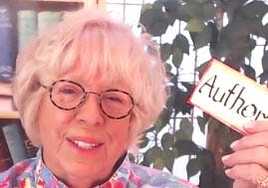
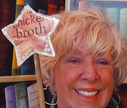
 RSS Feed
RSS Feed
